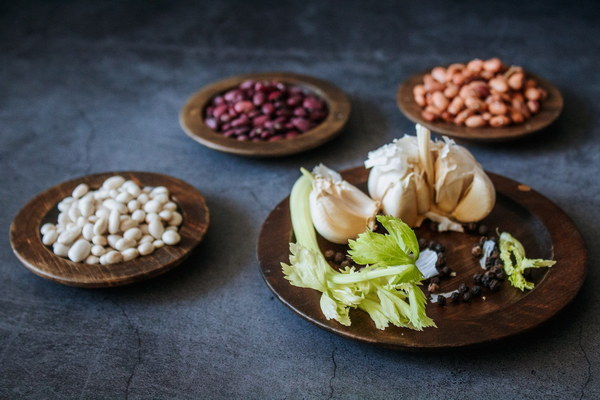Nurturing Your Childs Stomach and Spleen A Comprehensive Guide to Balancing Digestive Health
In the journey of raising a child, ensuring their overall health and well-being is paramount. One crucial aspect often overlooked is the balance of the stomach and spleen, which play a vital role in digestion, absorption, and the immune system. This article delves into the essential practices to nurture your child's stomach and spleen, fostering a foundation for lifelong digestive health.
Understanding the Stomach and Spleen in Children
The Chinese concept of the stomach and spleen, known as Pi and Panshi, refers to the organs responsible for transforming food into energy and nutrients. In children, these organs are particularly sensitive and require careful nurturing. Here are some key points to consider:
1. Digestive Power: The stomach and spleen are the core of digestion, breaking down food into nutrients that the body can use.
2. Immune Support: A healthy stomach and spleen contribute to a robust immune system, protecting children from illnesses.
3. Growth and Development: Proper nutrient absorption is essential for growth and development in children.
Practical Tips for Nurturing Stomach and Spleen Health
1. Balanced Diet: A well-rounded diet rich in whole grains, fruits, vegetables, and lean proteins is crucial. Here are some specific recommendations:
- Whole Grains: Brown rice, quinoa, and oatmeal are excellent for providing steady energy and supporting digestion.
- Fruits and Vegetables: Encourage a variety of colorful fruits and vegetables to ensure a wide range of vitamins and minerals.
- Proteins: Lean meats, fish, eggs, and legumes are great sources of protein and nutrients.
2. Avoid Overeating: Overeating can burden the stomach and spleen, leading to indigestion and other issues. Teach your child to listen to their body's hunger and fullness cues.

3. Gentle Eating Habits: Eating slowly and mindfully helps the stomach and spleen process food more effectively. Avoid distractions like TV or phones during meals.
4. Hydration: Adequate water intake is vital for digestion. Encourage your child to drink plenty of water throughout the day.
5. Moderation of Cold and Raw Foods: Cold and raw foods can be difficult for the stomach and spleen to process. Offer these in moderation and ensure they are properly prepared.
6. Regular Physical Activity: Regular exercise promotes healthy digestion and strengthens the spleen. Encourage activities like walking, cycling, or playing sports.
7. Herbal Remedies: Certain herbs can support stomach and spleen health. Consult with a healthcare provider before giving your child any herbal supplements.
8. Stress Management: Stress can negatively impact digestion. Encourage relaxation techniques, such as deep breathing or gentle yoga, to help manage stress levels.
Common Digestive Issues and Solutions
1. Diarrhea: Ensure your child is consuming enough fluids and consider incorporating probiotics into their diet. Foods like bananas, applesauce, and rice water can help absorb excess fluids and firm up the stool.
2. Constipation: Increase dietary fiber intake by including more fruits, vegetables, and whole grains. Encourage your child to drink plenty of water and ensure regular physical activity.
3. Indigestion: Avoid spicy, greasy, and fried foods. Encourage your child to eat smaller, more frequent meals and avoid overeating.
By focusing on these practices, you can help nurture your child's stomach and spleen, fostering a healthy digestive system that supports their overall well-being. Remember that each child is unique, and it's essential to tailor these practices to their specific needs and preferences. With patience, care, and a balanced approach, you can provide your child with a strong foundation for lifelong digestive health.









